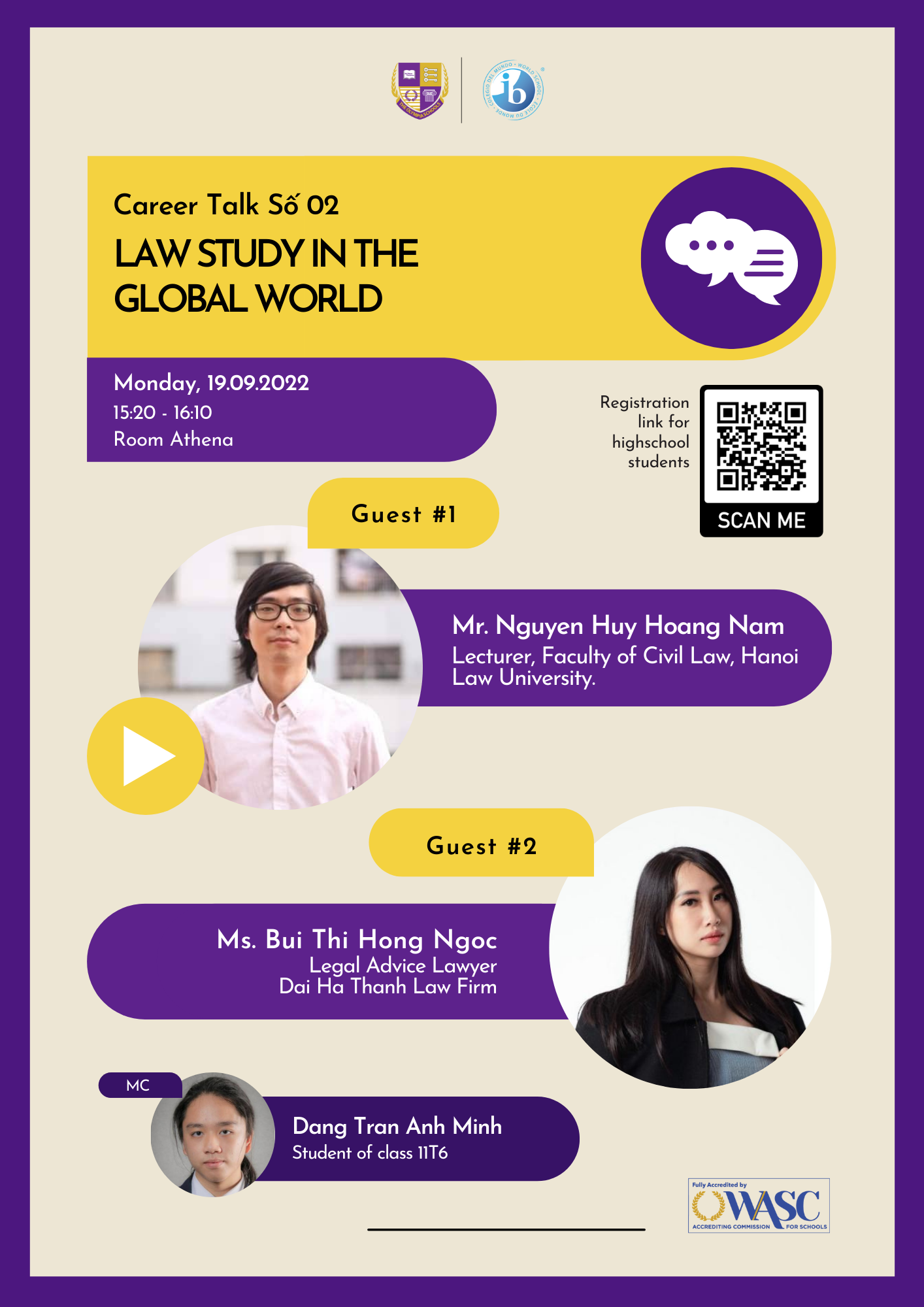
College Night: Opening up college – studying abroad life in intuitive and interactive way for Olympians
30 September, 2021
Going to college – studying abroad is not a straight journey from high school. There might be many twists and turns along the way. College Night brought up those topics so that high school school students can look at their higher education plan from different perspectives
Late April is always a busy time for UCC and Olympians as many admission letters have been delivered, application for overseas study has been completed and many have been preparing for the fall and spring enrollment. Besides the excitement, many questions are still unanswered to both students and parents. What should we do to ensure a sound transition? What else do we need on top of academic competence and financial capabilities?
These questions were raised and addressed at College Night on 16 April 2021 at Olympia Schools.
Instead of day time, the event was held in night time to make the atmosphere as cozy and comfortable for sharing as possible. The diversity in discussion topics and guests attracted the attendance of many students, parents and public press. College Night consisted of two sections, a general seminar and a theme-based discussion, to offer both general information and customized sessions to suit the interest of each student and parent
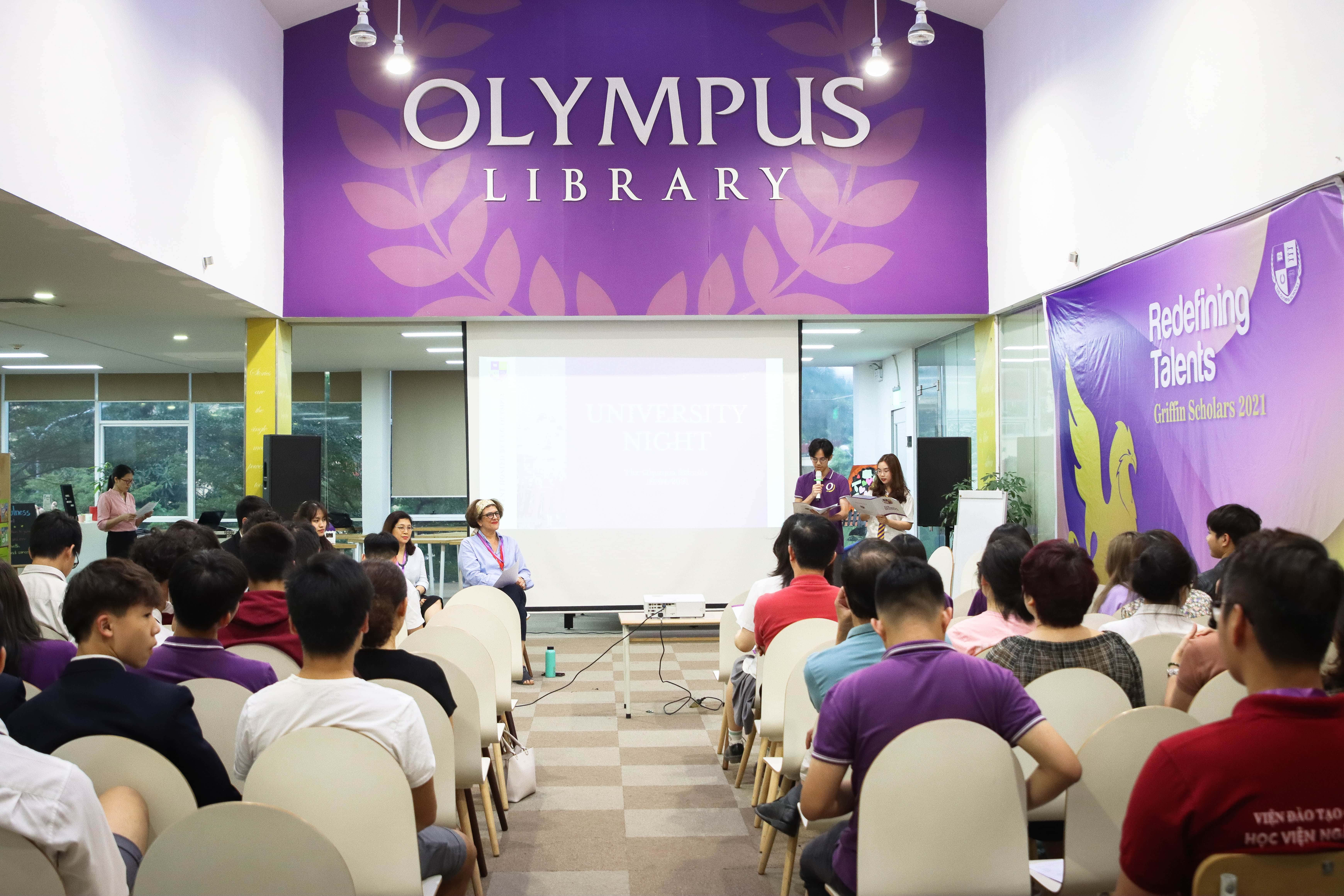
The event was held at Olympia Library
“Transition to college” seminar
College Night began with “Transition to college” seminar with the participation of Ms. Sandra Natalie Schneiderman - a lecturer at British University Vietnam (BUV); Nguyen Phuong Ha – an Olympian parent; Thien Trang and The Canh – Olympian alumni. Most parents and students are concerned about the challenges posed during the transition to college
From the viewpoint of a graduate in the US, Thien Trang shared that language is a big barrier in an exotic country even to those who have good English command. But it is also an opportunity for students to meet new people from different cultures. An open mindset would be much helpful to adapting to a new life in a foreign country. The Canh, a graduate from a local law university, also shared about some challenges including time management and self-discipline. A different timetable in college would pose a challenge to most of freshmen.
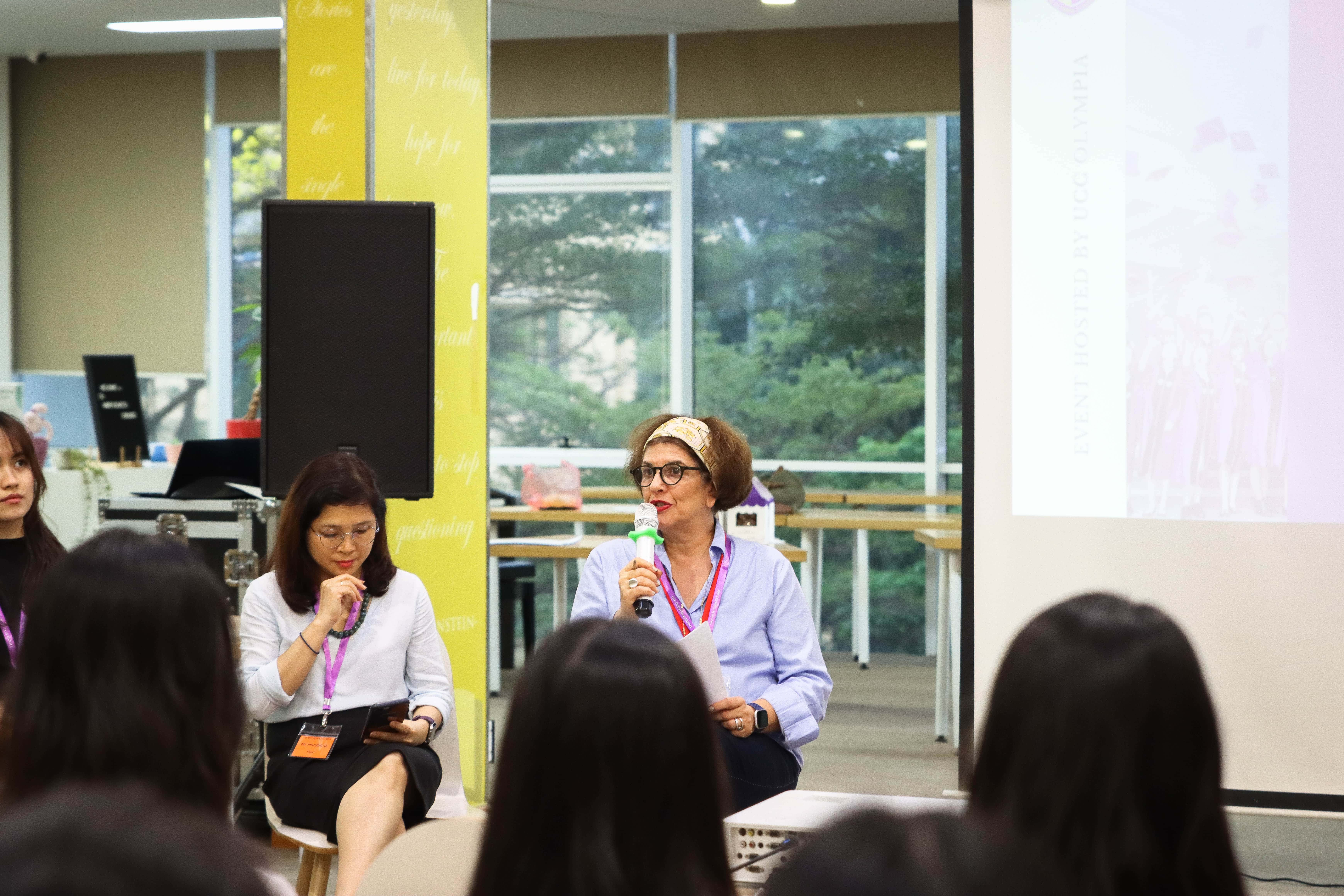
The guests include a college lecturer, parents and alumni
As a parent to an international student in Canada, Phuong Ha talked about the pressure that her daughter had to face in a different country. She suggested that parents should let their children learn to adapt to the new environment within the first six to twelve months. She herself focused on how to develop her child’s personal autonomy by respecting all of her decisions throughout the transition. “My daughter had to prepare herself to study aboard. I just supported her as a companion,” she told. This would help students make critical decisions by themselves when their family is not around.
A major question was raised as to some students find their major unsuitable after the first year. Phuong Ha also talked about how her daughter decided to change her major after being a freshman.
Changing major is a critical decision to each student and his/her parents. However, all the guests agreed that parents should counsel UCC and talk deeply with their children on changing their major. Parents can suggest their children contact their college consulting office to get the best advice. Parents should not panic, or exert too much pressure, or approve immediately when their children talk about changing major.
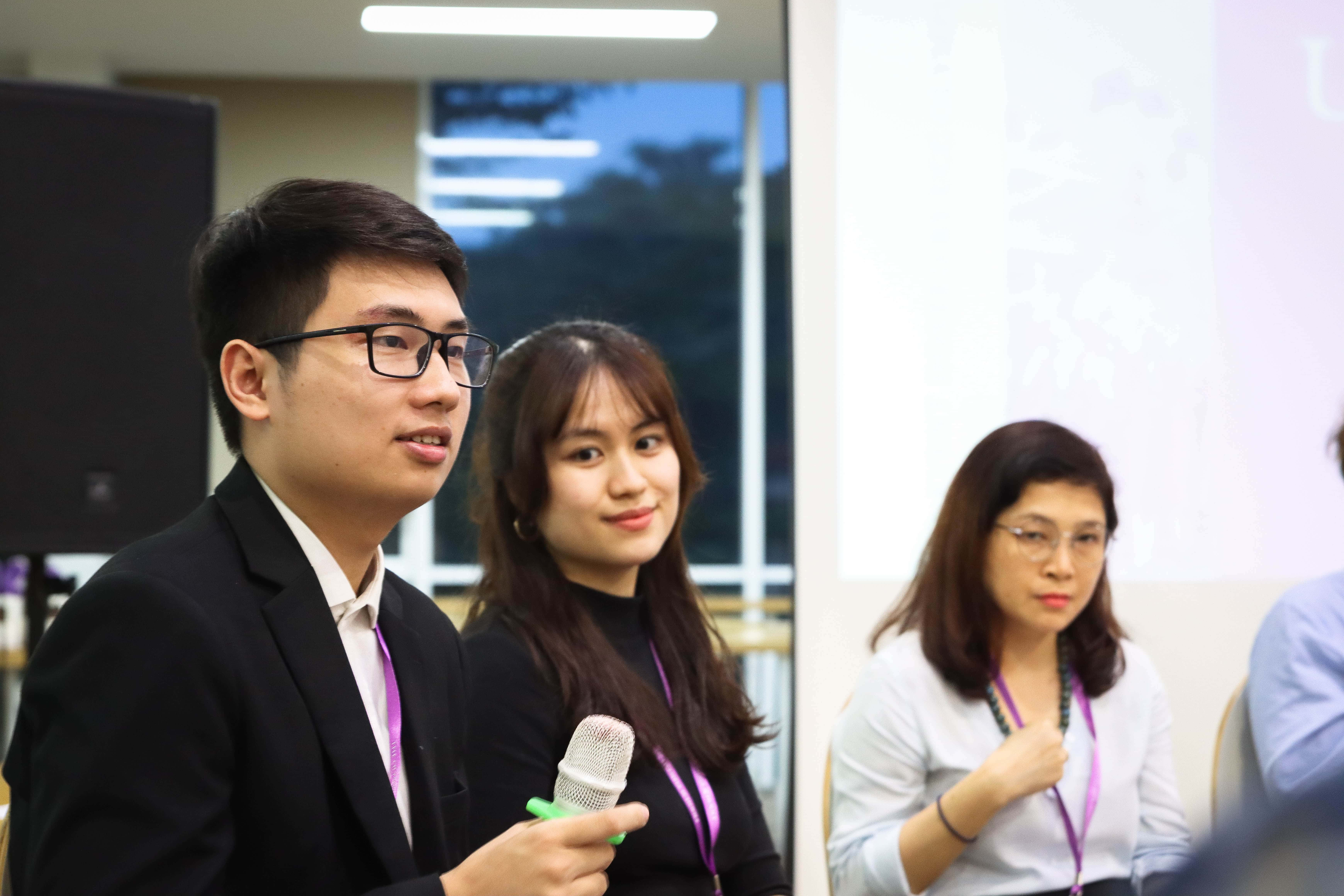
Changing major should be a carefully considered decision with sufficient consultation. Students must read and research and experience first-hand to find out which major they would like to register before making the decision. They should have an open mind and the willingness to explore difference opportunities. That is the recommendation of Thien Trang, a graduate in the US./span>
Thien Trang also shared a “fun fact” that students should not always convert US currency into VND in their mind as they will always be aware of the gap. As a result, it will put a lot of financial pressure on them and restrain themselves from spending on important items. Rather than being stingy, students should learn and improve their financial management skills.
A diverse college experience
Following the seminar, College Night jumped to the theme-based discussion in which students can join four sessions with some demo lessons. In particular, students can join a demo class on business administration by lecturer Don Hickerson from BUV, an online Introduction to Psychology lesson by Professor Paul Bloom on Yale Open Course, a sharing session about extracurricular activities in AIESEC – a student-run organization, and a consulting session about internship by The Canh and Tung Lam.
These four sessions represent what are important to students before going to college. A demo class or a face-to-face sharing session is an interactive and effective method for students to grasp the information.
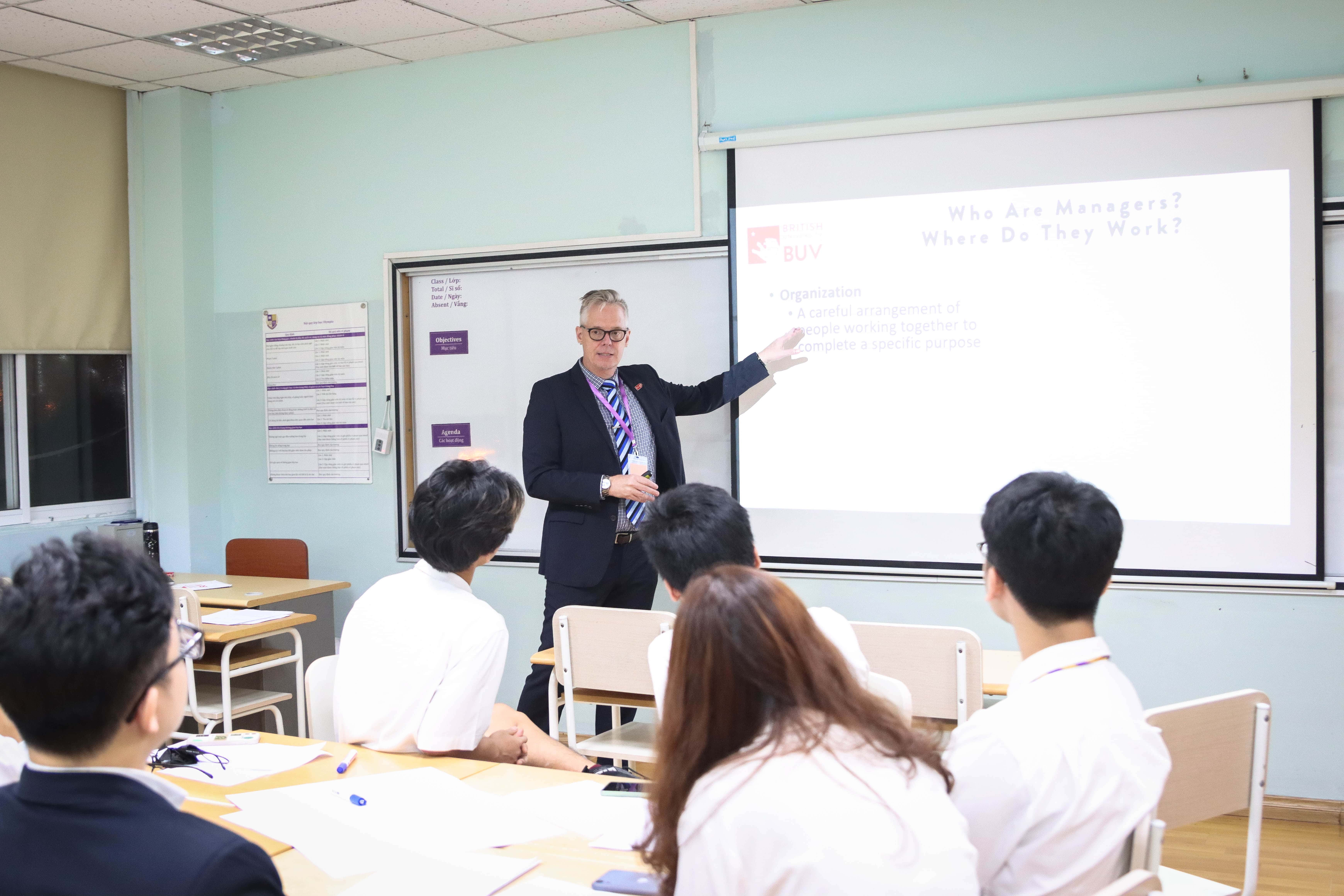
A demo of a regular BUV class.
In the demo BUV class of lecturer Don Hickerson, Olympians can envisage accurately what shall happen in one regular college class. A class with no restraints on space with freedom to speakrequires students to develop their self-taught skills and independence. On the other hand, some class rules are still maintained to ensure the discipline. New topic (introduction to business administration), different way to interact, and new features of class can be clearly observed.
In the online Introduction to Psychology class of Professor Paul Bloom, students can have a sound grasp of how to take an online course during Covid time. Whatever the enrollment is in fall 2021 or spring 2022, online classes are likely to be adopted around the world. Students are required to self-study most of the time. Unlike high school teachers who closely monitor each student, college lecturers require students to push themselves not to lag behind, especially when their family is not around.
In the next session, students can get expose to college extracurricular activities. Khanh Linh, Vice President of AIESEC Hanoi, shared about this topic. As a prestigious student-run organization in Hanoi for the last 14 years, AIESEC opens up a space for students to develop their soft skills, gain more social experience, and enrich their resumé. Extracurricular activities have become more and more popular as students start to realize their benefits. However, what should be borne in mind is which activity is suitable and valuable to college students.
The top concern might be internship in college and post-graduate. Sharing the same viewpoint, The Canh and Tung Lam said that internship, whether local and overseas, would help students explore their strengths, know what they want, polish their resumé, and get the initial working experience.
“During my internship, I set the goal of understanding the foreign workstyle and working environment. It was simply get-to-know. But during my co-op, I set more ambitious goals. As I already knew which major I wanted to work on, I targeted at asking many questions, taking up more workload, and connecting to more people,” said Tung Lam, Olympian alumnus with five years studying in the US.
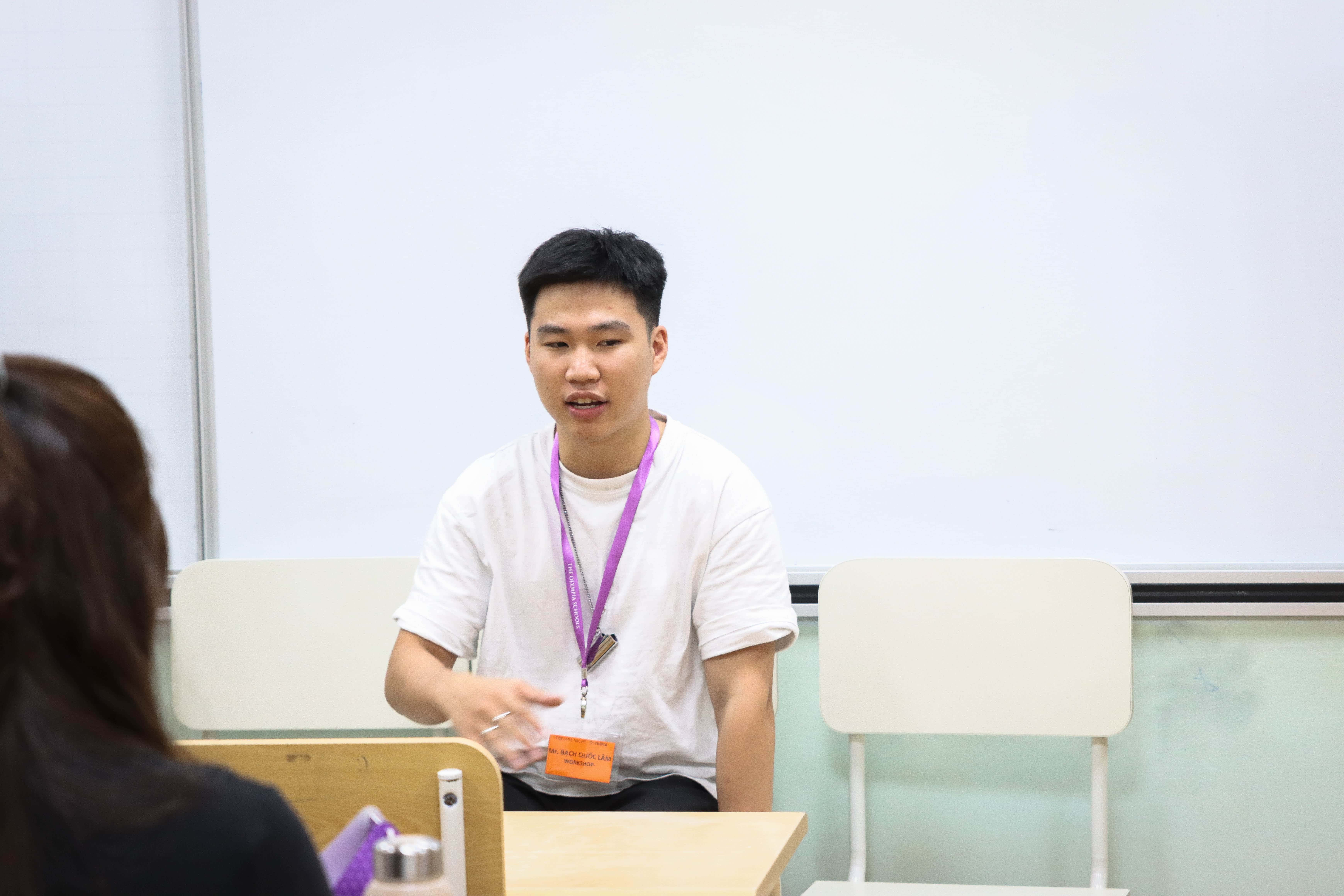
Tùng Lâm - cựu học sinh Olympia với năm 5 học tại Mỹ có những chia sẻ về thực tập/kiến tập với học sinh
Students can look for internship opportunities on LinkedIn, Facebook, or fan page. Besides, networking is very important as it will provide many reliable sources for internship
Regarding personal financial management skills, representatives from Banking Academy shared some tips on how to have sound financial management during college, whether local or overseas. Students joined the game on how to manage monthly expenses, how to control spending, and how to be “rich”. By the end of the session, students learned important lessons with many useful financial management tools.
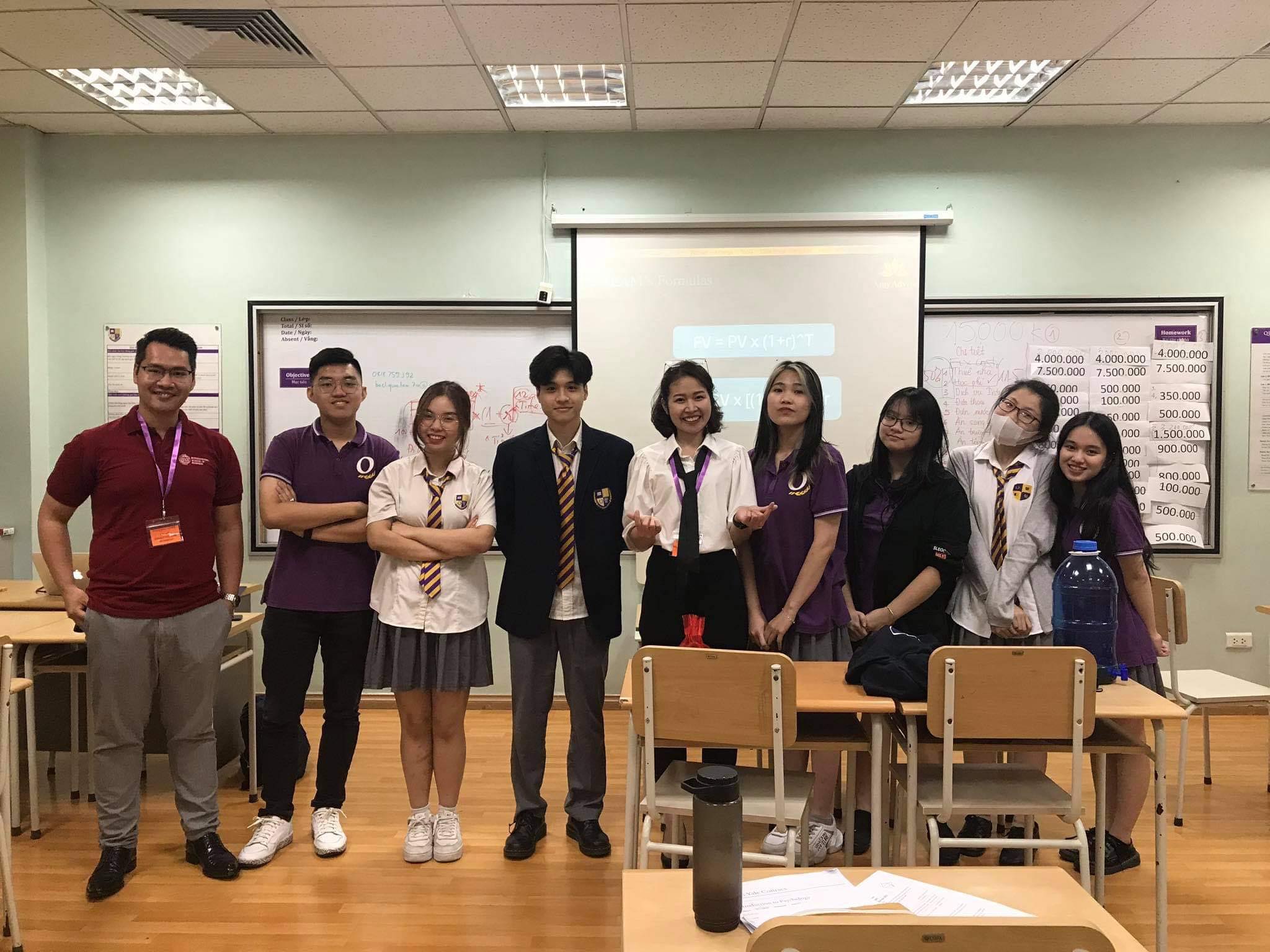
***
College Night has ended but we expect that our students and parents have had their own takeaways to prepare for their college journey with comfort and confidence.











